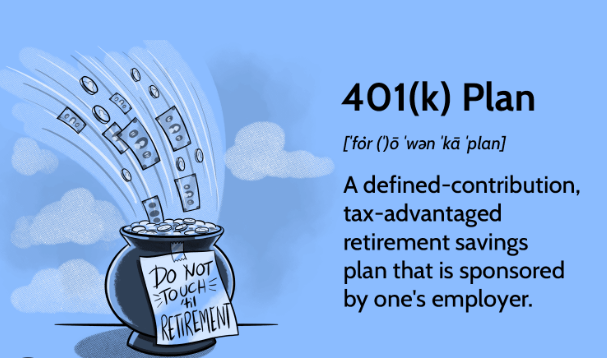A bond refers to a fixed-income investment that denotes a loan provided by an investor to a borrower, which is typically a corporation or government. The purchase of a bond by an investor signifies lending money to the bond issuer, with the expectation of receiving regular coupon payments as interest and repayment of the principal investment at the bond’s maturity date.
Definition of Bonds
In fixed-income investments such as bonds, an investor lends money to a borrower, usually a corporation or government entity, in exchange for regular coupon payments or interest and the repayment of their principal investment at the bond’s maturity date. Bonds are typically issued with a defined maturity date, and their prices are influenced by several factors, including variations in interest rates, issuer creditworthiness, and supply and demand dynamics in the bond market.
Types of Bonds
Different types of bonds include:
- Government Bonds: These are low-risk bonds issued by government entities backed by their creditworthiness, offering lower yields than other bonds.
- Corporate Bonds: These higher-risk bonds are issued by corporations to raise funds for their business operations or expansion, with yields generally higher than government bonds.
- Municipal Bonds: These bonds are issued by state or local governments to fund public projects, and they are exempt from federal income taxes.
- Zero-coupon Bonds: These bonds are sold at a discounted price, do not pay interest, and offer a fixed return at maturity.
- Convertible Bonds: These bonds permit investors to convert their bond holdings into stock of the issuing company at a specific price.
- High-yield Bonds: Also known as junk bonds, they are issued by companies with lower credit ratings and offer higher yields to compensate for the additional risk.
- Foreign Bonds: These bonds carry currency and geopolitical risks because they are issued by foreign entities.
Investors should carefully assess their investment objectives and risk tolerance before investing in any type of bond as each type has varying benefits and risks.
Features of Bonds
Bonds possess various significant features, which include:
Coupon Rate: The fixed interest rate that a bond issuer pays to the bondholder.
Maturity Date: The date on which the bond issuer is obligated to repay the bond’s principal amount to the bondholder.
Face Value: The nominal value of the bond at the time of issuance, which the issuer is obliged to pay back to the bondholder at maturity.
Credit Rating: A rating assigned to the bond issuer by credit rating agencies, denoting their creditworthiness and the likelihood of default.
Yield to Maturity: The total return that an investor can anticipate to earn if the bond is held until maturity, taking into account interest payments and changes in the bond’s market value.
Call Provision: A feature that enables the issuer to redeem the bond before maturity, typically at a premium price.
Put Provision: A feature that allows the bondholder to sell the bond back to the issuer before maturity, usually at a predetermined price.
Liquidity: The level of ease with which a bond can be traded or sold in the market.
Having a clear understanding of these features can aid investors in making informed decisions about which bonds to invest in, considering their investment objectives and risk tolerance.
How Bonds Work
Bonds serve as a means for corporations and governments to generate funds. Investors who purchase bonds provide the issuer with a loan in exchange for periodic interest payments, or coupons, and the return of their principal investment at the bond’s maturity date. Bonds come with a predetermined interest rate and maturity date, and their value can fluctuate depending on factors such as variations in interest rates, the issuer’s creditworthiness, and market supply and demand. The credit rating of the bond issuer is a critical factor in determining the interest rate that the issuer will pay and the level of risk that the investor is undertaking by investing in the bond.To raise capital, governments, corporations, and other entities issue bonds, a type of debt security. When an investor purchases a bond, they lend money to the issuer in exchange for coupon payments or interest payments and repayment of the principal investment at the bond’s maturity date. Bonds have fixed interest rates and maturity dates, and their prices can fluctuate based on various factors like changes in interest rates, creditworthiness of the issuer, and supply and demand in the bond market. Bond issuer’s credit rating determines the interest rate the issuer will pay and the level of risk the investor will take. Bonds offer a reliable and predictable income stream, making them a preferred choice for steady income seekers. They are also less risky than stocks due to fixed returns and maturity dates.
Risks and Benefits of Bonds
Bonds have their own set of risks and rewards for investors. One of the primary advantages of bonds is their ability to offer a consistent source of income through coupon payments, making them an attractive investment option for those seeking stable cash flow. Moreover, bonds are often seen as less risky than stocks as they offer a predetermined rate of return and have a specified maturity date.
To manage these risks, investors can diversify their bond portfolio by investing in a range of bond types, issuers with varying credit ratings, and maturities. It’s also essential to assess the creditworthiness of the issuer and consider current market and economic conditions before investing in bonds. Ultimately, investors need to carefully take risks and benefits of bonds and consider their investment objectives, risk tolerance, and overall portfolio strategy.
Bond Market
The bond market is where debt securities, like bonds, are bought and sold and is a significant player in financing government and corporate debt. It encompasses a wide range of participants, including banks, governments, institutional and individual investors. Bonds traded in the market can have varying maturities, credit ratings, and interest rates that can affect their price and yield. Economic indicators, like inflation rates and central bank policies, can also influence the bond market, leading to fluctuations and volatility. The bond market provides investors with a chance to receive a fixed-interest payment and allows issuers to raise funds for their financial requirements.
Factors Affecting Bond Prices
Bond prices can be influenced by a variety of factors, such as fluctuations in interest rates, inflation expectations, issuer creditworthiness, supply and demand dynamics in the bond market, and geopolitical risks. A rise in interest rates typically results in a decrease in bond prices since investors require higher yields to offset the risk of holding lower-yielding bonds. On the other hand, a decrease in interest rates can boost bond prices as investors are willing to pay more for the fixed income provided by bonds. Inflation expectations may also impact bond prices as higher inflation expectations could result in investors demanding higher yields to account for the diminishing purchasing power of their fixed income payments.
Factors to Consider When Investing in Bonds
When making an investment in bonds, there are multiple factors that investors must take into account. Initially, it is crucial to assess investment objectives and risk tolerance to identify the suitable types of bonds for the portfolio. Evaluating the creditworthiness of the issuer, along with the bond’s credit rating and yield to maturity, is also essential. Other critical factors include bond duration, liquidity, and call and put provisions. Additionally, it is advisable to remain up-to-date about changes in interest rates, inflation expectations, and geopolitical risks, as these can significantly impact the value of bond investments.





